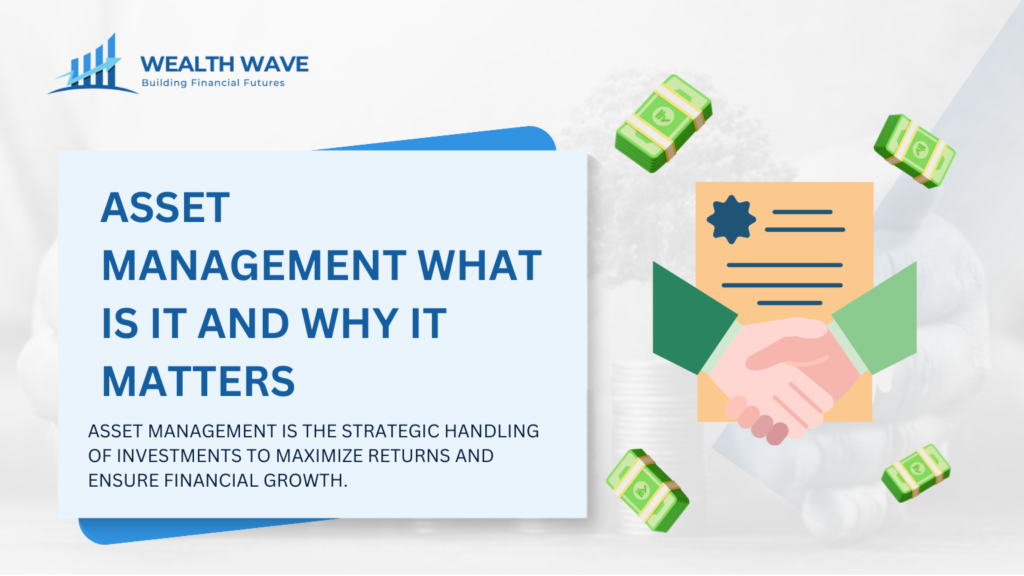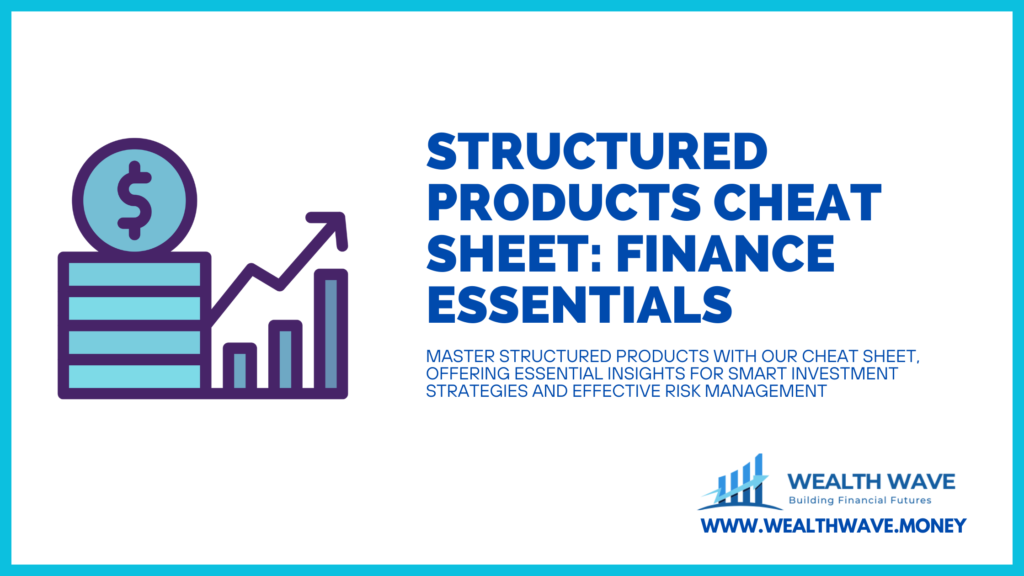
Ever find yourself pondering how companies keep their wealth growing? It’s all about mastering asset management. And let’s be honest, the concept can seem a tad intimidating at first glance.
Like many folks out there, tackling this topic initially had us scratching our heads too. But, after rolling up our sleeves and diving deep, we’ve come to see asset management as a clever strategy for building wealth over time.
In this blog post, we’re going to break down Asset Management What Is It and Why It Matters in today’s whirlwind of a world. Whether it’s keeping tabs on pricey equipment or ensuring that your investments yield returns in the long haul, rest assured—we’re here to guide you through.
You’ll unravel the mysteries of financial planning and risk management among others, all simplified to bolster your bottom line sans the confusing jargon. So gear up; it’s time to put your assets to work smarter!
Key Takeaways
- Asset management is the practice of buying, selling, and managing investments to increase wealth over time. It involves tracking both tangible and intangible assets for better understanding and income generation.
- The process includes a systematic approach that balances costs, opportunities, and risks. This means developing, operating, maintaining, upgrading, and disposing of assets effectively to optimize resources.
- Various types of asset management cater to different needs such as financial asset management for investments; physical and infrastructure for overseeing tangible assets; software asset management (SAM) for handling software applications; and intellectual or non-physical asset management focusing on intangible assets like intellectual property.
- Effective asset management leads to increased wealth by ensuring efficient resource utilization which in turn boosts productivity and reduces waste.
- Unlike brokers who facilitate transactions or wealth managers who offer broader financial planning services, asset managers engage in comprehensive strategies focusing on long-term growth through balanced investment practices.
Defining Asset Management

Asset management refers to buying, selling, and managing investments. We aim to increase wealth over time. This practice helps businesses track both tangible and intangible assets.
Managing every asset owned by a business allows for better understanding of value and income generation.
We deal with various types, including financial asset management and software asset management. Asset managers work to balance costs, opportunities, and risks. This systematic approach enables us to develop, operate, maintain, and sell assets efficiently.
Next, we will explore the process of asset management.
The Process of Asset Management

The process of asset management involves developing, operating, maintaining, upgrading, and disposing of assets effectively. We focus on balancing costs with opportunities and risks to optimize our resources efficiently.
Developing, Operating, Maintaining, Upgrading, and Disposing of Assets

We develop, operate, maintain, upgrade, and dispose of assets to maximize value. This process involves careful management of both tangible and intangible assets. Managing investments effectively helps us increase wealth over time.
We must consider costs while making decisions about how to handle our resources.
Operating assets efficiently keeps our businesses running smoothly. Regular maintenance prevents costly repairs and downtime. Upgrading our assets leads to improved performance and productivity.
Disposing of assets responsibly allows us to capitalize on value at the right time. In this way, asset management plays a crucial role in managing investments and enhancing overall performance.
Balancing Costs, Opportunities and Risks

Balancing costs, opportunities, and risks is crucial in asset management. We analyze each investment to ensure we maximize potential returns while minimizing expenses. By managing every asset owned by a business, we can identify both tangible and intangible opportunities.
Asset managers must also account for inflation and find safe havens for our investments. This proactive approach allows us to increase the value of our investments and mitigate potential risks.
Ultimately, effective asset management enables us to utilize our resources efficiently while generating income.
Types of Asset Management

Asset management encompasses various approaches that cater to different needs. We can explore areas like financial asset management and software asset management, each serving unique purposes in managing and optimizing assets effectively.
Financial Asset Management
Financial asset management involves buying, selling, and managing investments. This practice aims to increase wealth over time. We focus on various investment strategies to optimize asset performance.
By tracking our financial assets, we gain insight into their value and income generation. This systematic approach helps us balance risks and opportunities effectively. Asset managers must deal with inflation and seek safe havens for investments.
Many organizations use financial asset management to mitigate risks while increasing investment value.
Physical and Infrastructure Asset Management
Physical and infrastructure asset management involves the oversight of tangible assets. These assets include buildings, machinery, and infrastructure like roads or bridges. We focus on developing, operating, and maintaining these assets to ensure their longevity.
Effective asset tracking allows us to monitor the performance and condition of these items. We aim to optimize resource utilization and reduce waste as we manage these valuable assets.
This type of asset management helps us understand the value of our physical holdings. We also incorporate strategies for asset disposal when they no longer serve our goals. By implementing a systematic approach, we can enhance productivity and reliability.
Our goal remains clear: to protect our investments while mitigating risks associated with asset ownership.
Engineering Asset Management
Engineering asset management focuses on the efficient use of physical assets. We oversee the development, operation, and maintenance of these assets. This process helps businesses manage both tangible and intangible investments.
By maintaining assets effectively, we reduce waste and increase productivity.
Our approach involves understanding asset value and income generation. We aim to minimize risks while maximizing opportunities. Asset managers must strategize to cope with inflation and find safe havens for investments.
This systematic method allows us to enhance the overall performance and reliability of our engineering assets.
Software Asset Management
Software asset management (SAM) focuses on managing software applications within an organization. This process includes purchasing, tracking, and maintaining software licenses. SAM helps us ensure compliance and avoid penalties.
Businesses can protect their investments by managing both tangible and intangible assets effectively.
We can increase our understanding of the value that software brings to our operations. Asset management systems allow us to monitor software usage and performance. This oversight can lead to better asset allocation and reduced costs.
By implementing SAM, we can optimize resource management and improve overall productivity.
Intellectual and Non-Physical Asset Management
Intellectual and non-physical asset management focuses on managing intangible assets. These include intellectual property, brand value, and data. We recognize that these assets can significantly impact our overall wealth.
Asset management helps us maximize the value of both tangible and intangible assets. This process involves assessing the worth of our non-physical assets and finding ways to enhance their value.
By doing so, we can generate income and reduce risks.
Many organizations use asset management to boost investment value. This practice allows us to understand better how our non-physical assets contribute to business goals. We can make informed business decisions by analyzing these assets for performance and potential growth.
Next, we will explore the various benefits of effective asset management.
Benefits of Asset Management

Asset management helps us grow our wealth effectively. It ensures we use resources wisely and reduce waste, which boosts productivity and reliability.
Increased Wealth
Asset management helps us increase wealth over time. By buying, selling, and managing investments, we can grow our financial assets. A dedicated asset management system allows us to keep track of our expensive investments and make informed decisions.
We should also consider both tangible and intangible assets to realize their full value.
Many organizations use asset management to boost the value of their investments. This process aids in mitigating risks while navigating the challenges of inflation. Effective asset management maximizes income generation from our assets, contributing to overall financial health.
Efficient Resource Utilization and Reduced Waste
Efficient resource utilization helps us maximize our investments. We manage both tangible and intangible assets effectively. This practice reduces waste and lowers costs. By carefully tracking our resources, we ensure that every dollar counts.
Implementing a dedicated asset management system allows us to oversee valuable assets closely. Our focus on asset maintenance leads to better productivity and reliability. We enhance the value of our investments while mitigating risks.
Next, we explore how asset management differs from other services.
Improved Productivity and Reliability
Asset management boosts productivity and reliability in our operations. It involves managing every asset owned by a business, both tangible and intangible. By keeping track of valuable investments, we can increase wealth while reducing waste.
Systematic asset management helps us understand the value of our assets. We can identify how these assets generate income and optimize their use.
This approach leads to more efficient resource utilization. We see improvements in productivity as we operate and maintain our assets effectively. As a result, we enhance our overall performance management.
Companies that adopt asset management practices often report noticeable gains in reliability and income generation. Asset management truly plays a vital role in our journey toward sustained growth and success.
Supporting IT Service Management Practices
We support IT service management practices through effective asset management. This practice helps businesses understand the value of their assets. We manage every asset, both tangible and intangible.
By keeping track of these assets, we can ensure they generate income efficiently. Our asset management system enables us to monitor expensive assets. This way, we allocate resources wisely and reduce waste.
Inflation poses challenges, but we work to find safe havens for our investments. A solid asset management strategy can boost productivity and reliability. Organizations benefit from improved service delivery and enhanced decision-making.
These practices lead to increased wealth and greater efficiency. They also support our overall financial management efforts.
Next, we will explore how asset management differs from other services.
How Asset Management Differs From Other Services

Asset management focuses on comprehensive strategies for managing assets effectively. It stands apart from traditional services like brokerage, emphasizing long-term growth over short-term gains.
Differences from Brokers and Wealth Managers
Brokers and wealth managers focus on different aspects of finance compared to asset managers. Brokers primarily facilitate buying and selling investments. They earn commissions on trades.
Wealth managers provide a broader range of financial services. They focus on comprehensive financial planning and goal setting.
We manage every asset owned by a business, both tangible and intangible. This includes developing, operating, maintaining, and selling assets cost-effectively. Our role involves balancing costs, opportunities, and risks.
We aim to increase wealth over time while mitigating risks. Unlike brokers and wealth managers, we maintain a systematic approach to governance and value realization for all assets.
Cost of Working with an Asset Manager
Working with an asset manager incurs some costs. These expenses can vary based on the services we require. Typically, asset managers charge fees based on the assets they manage. We pay these fees to benefit from their expertise in investment management and portfolio management.
While these costs may seem high, they often bring worthwhile advantages. Asset management can help us navigate inflation and identify safe havens for our investments. By comparing the costs and benefits, we can see the value asset managers provide in increasing our wealth and protecting our assets.
Understanding these costs helps us appreciate the role of asset management in our financial strategy.
Next, we will explore the benefits of asset management in more detail.
Benefits of Working with an Asset Manager
Working with an asset manager boosts our financial growth. Asset management is key to buying, selling, and managing investments. This practice helps us increase wealth over time. An asset manager tracks our tangible and intangible assets.
They help us understand our asset values and income generation. Through their expertise, we can navigate inflation and find safe investment havens.
An asset manager saves us time and effort. They manage our investments, allowing us to focus on other priorities. Many organizations benefit by increasing investment value while minimizing risk.
Their systematic approach enhances our resource utilization and reduces waste. Effective asset management supports our financial goals, ensuring we achieve optimal productivity and reliability.
Now, let’s explore how asset management differs from other services.
Conclusion

We explored what asset management means. This process helps us buy, sell, and manage investments wisely. We learned that managing both tangible and intangible assets is crucial. Asset management increases our wealth while reducing risks.
Let’s apply these strategies to see real benefits in our financial lives.
FAQs
Q1. What does it mean by asset management?
Ans. Asset management is a systematic process of managing and investing assets such as capital to increase wealth.
Q2. How is wealth management related to asset management?
Ans. Wealth management, a subset of asset management, focuses on estate planning and other financial services for individuals or families aiming to grow their wealth.
Q3. Can institutions benefit from asset management too?
Ans. Yes, institutional investing is a part of asset management that deals with the investment needs of larger entities like pension funds or insurance companies.
Q4. Does asset protection form part of the scope in Asset Management?
Ans. Indeed! Asset protection strategies are integral parts of effective asset and wealth management plans designed to shield assets from potential creditors.




